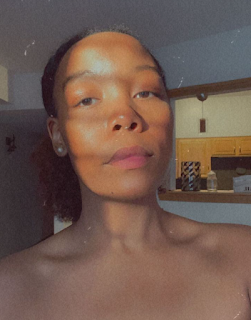An Op-Ed: Finding Representation in Literature
Ever since I was a child, I loved reading. I was an avid bookworm that would check out 22 books during spring break and read every single one of them. I was the only child in the house growing up, and I did not own a video game system so I was often responsible for creating my own entertainment. I would read all day, and keep a book and a flashlight under the cover at night. There was a time in elementary school where I would binge read Twilight and finish it within the day. I would make my way through A Series of Unfortunate Events with great speed. I found great joy in reading science fiction, fantasy, thrillers, and murder mysteries. But, as much as I loved reading I rarely read books written by black authors or books where I felt genuinely represented.
The books I did read by black authors often centered stories that involved poverty, prisons and police, gang fights, drive-by's, and revolved heavily around black trauma. While these stories may have accurately reflected the neighborhood and elementary school I grew up in, the constant focus on black trauma was absolutely exhausting. I was often left wanting more. I wanted stories about elves, fairies, goblins, other worlds, different dimensions, alternate realities, space travel, and more importantly I wanted to feel included and represented. I wanted to feel as if I was a part of the story and not an outsider looking in.
Throughout elementary school and highschool, we would read pieces like Macbeth, Romeo and Juliet, Hamlet, Dante’s Inferno, The Great Gatsby, and other books that meant absolutely nothing to me. I did not enjoy reading them, they resonated very little with me, and the characters were nothing like me. Being forced to read these books did nothing but drive a wedge between myself and my love for reading. While the themes in these books and plays may be timeless, they did not engage me as a reader at all. I still have yet to understand why antiquated pieces are still being assigned in classrooms while books like The Bluest Eye, The Hate We Give and The New Jim Crow are being banned across classrooms.
It was not until I made it to college that I learned about Octavia Butler and NK Jemisin. When I was in college, I enrolled in an African American Studies course that focused solely on literature written by black women. A course taught by a black woman, in a classroom of predominantly black students, where we were all able to engage in book discussions about the books we were reading. We read books written by Octavia Butler, Jacqueline Woodson, bell hooks, Jewell Parker Rhodes, Edwidge Danticat, and Gloria Naylor.
This was the course that challenged me to be more intentional about reading books by black authors, and especially black women. I wanted to enjoy books that went beyond highlighting black trauma, that focused on topics outside of poverty and police brutality. I wanted to read science fiction, fantasy, murder mysteries, thrillers and horror books. Books where the characters looked like me, talked like me, lived in communities like mine, and had similar life experiences to mine. I wanted characters that wore their hair in braids, bonnets at night, and went through their full hair care routine as they scavenged their world for magical weapons. This is what led me to create an instagram account where I would become a part of the thriving black, book community.
In 2020 I started a book-stagram page that focused on black authors, but more specifically black women and black non-binary authors. I found communities of folks who were all on their own reading journeys. Other book-stagrammers who were also committed to reading books that better reflected their identities. I was able to connect with black authors, black writers, and have a blast doing so. Finding and reading books where I felt genuinely represented strengthened my love for reading again. Finding that representation makes me excited to read more books, read more comics, listen to more podcasts, and enjoy more black art.
Submitted by Nikhaule Martin, CEO of Insight Writings














No comments